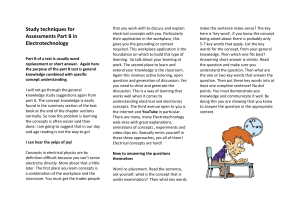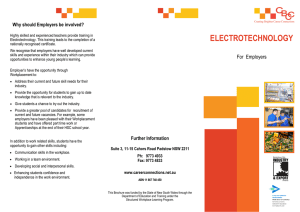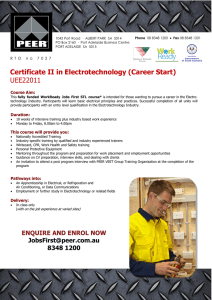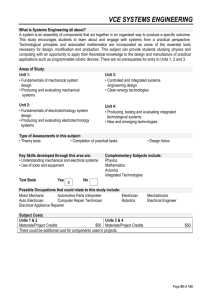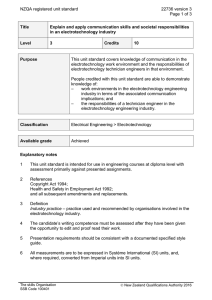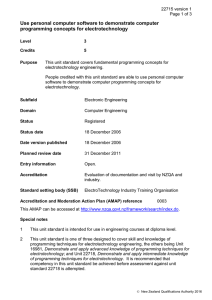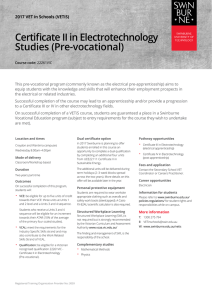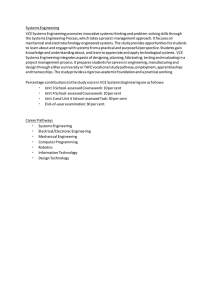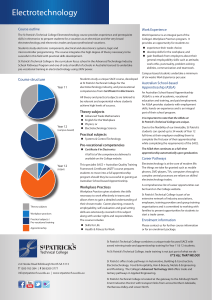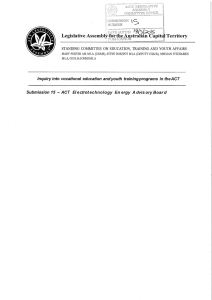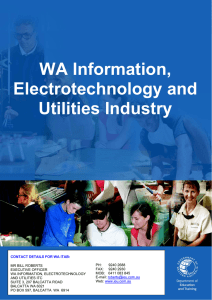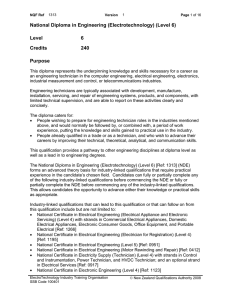ELECTROTECHNOLOGY
advertisement
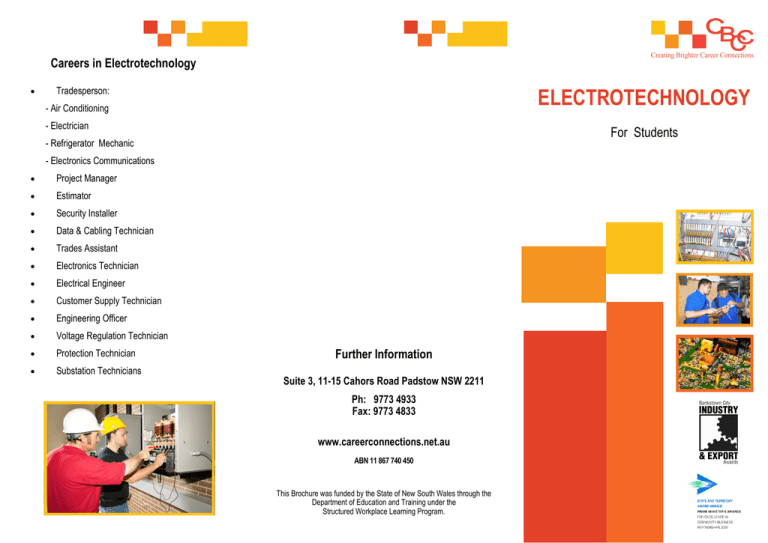
Careers in Electrotechnology ELECTROTECHNOLOGY Tradesperson: - Air Conditioning - Electrician For Students - Refrigerator Mechanic - Electronics Communications Project Manager Estimator Security Installer Data & Cabling Technician Trades Assistant Electronics Technician Electrical Engineer Customer Supply Technician Engineering Officer Voltage Regulation Technician Protection Technician Substation Technicians Further Information Suite 3, 11-15 Cahors Road Padstow NSW 2211 Ph: 9773 4933 Fax: 9773 4833 www.careerconnections.net.au ABN 11 867 740 450 This Brochure was funded by the State of New South Wales through the Department of Education and Training under the Structured Workplace Learning Program. About Workplacement Workplacement provides young people studying a Certificate course in Electrotechnology as part of their HSC course the opportunity to: Why should I do Electrotechnology? Electrotechnology is an exciting & varied industry. Practice skills and knowledge acquired in the course and in the workplace. Students involved in the course will be taught how to recognise and use a range of components, accessories, tools, equipment and technologies which are involved in the Electrotechnology industry. Learn about the “world of work”, its environment, structure, expectations and routines. As electricity is a vital part of Australian life, electrical technicians and tradespeople are invaluable in maintaining stability and order in our society. Further develop social and interpersonal skills. Increase confidence and independence. Investigate career options. Decide whether or not the industry is suitable for them. Industry Specific Skills Some activities may differ with employers. These may include: Use hand tools to assist in a job. Basic soldering. Operate general machinery. Perform electronic and electrical assembly. Observe a job from start to finish and document the processes involved. Create an inventory of tools used, detailing which employee positions use each. Where possible create a data base of tools and their use. Stocktake the materials used in the business. Students can include one of these courses in their Australian Tertiary Admission Rank (ATAR) OR obtain credit for their subjects studied to gain advanced standing for further training. In addition to the work skills, students will also gain other skills including: Communication in the workplace Organisational Skills Working in a team environment Building social and interpersonal skills Enhancing your confidence and independence in the work environment Plan daily work routines Follow and understand workplace procedures
